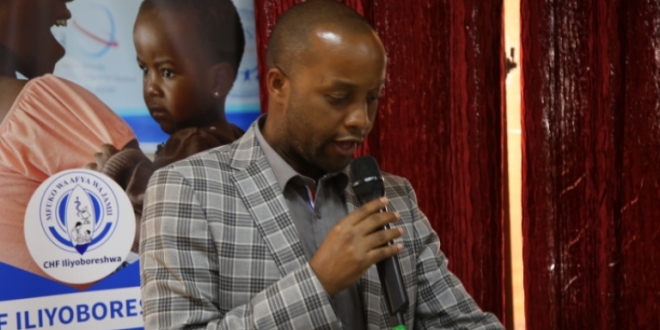THE government is set to simplify the improved Community Health Fund (CHF) payment system by enabling electronic payment, reducing costs of the scheme and improving revenue collection and cash flow management.
Rasheed Maftah, the acting director for health services in the President’s Office (Regional Administration and Local Governments) (PO-RALG) said at a workshop in Morogoro recently that the CHF e-payment system would be rolled out nationwide mid next month, with over one million active members.
At the three-day workshop on using CHF e-payment format, the director urged participants to build capacity among CHF teams at district, ward and village levels, on how to use the CHF e-payment system, and this effort be completed by the second week of January.
The training involved regional coordinators, information technology officers and district council teams from across the country, where the director acknowledged assistance of the Swiss TPH/HPSS project in development the CHF e-payment system.
It is integrated in the Government e-Payment Gateway (GePG) system that is administered by the Treasury in accordance with the Public Finance Act (PFA) of 2001 as amended in 2017 (Cap. 348), and Treasury circular No. 3 of 2017, where the Act requires departmental accounting officers to collect public funds through GePG.
The government has adopted the use of GePG system in the collection and management of public funds. To ensure revenues from improved CHF are properly managed in accordance with government financial management principles.
To achieve this, PO-RALG in collaboration with Swiss TPH/HPSS Project decided to develop CHF e-payment system that will facilitate the collection of CHF payments through various mobile phone and bank services. An online entry says the Swiss government’s health promotion and system strengthening (HPSS) project is a people-centered project that follows a comprehensive systems approach.
It is administered by the Swiss Development and Cooperation Agency (SDC) and implemented by the Swiss Tropical and Public Health Institute working with PO-RALG, facilitating training for improved CHF regional coordinating teams on the use of the CHF e-payment system.
The capacity building workshop ahead of the national rollout in the next few weeks comes after a successful pilot exercise was conducted in Shinyanga region, the director noted.
The Swiss TPH/HPSS Project supports innovative government health programs through the Health ministry and PO-RALG since 2011, providing technical support in various health initiatives, including improved CHF.
Elizeus Rwezaura, an official of the Swiss TPH/HPSS project lauded the participants for commitment to further improve CHF by an e-payment system, promising the agency’s help in case of need for technical support during the rollout exercise.
The Community Health Fund was introduced in 2001; where each district sets up a CHF unit for pre-payment arrangement where residents in the district are encouraged to join by contribution specified amounts and be assured of cost coverage for health care needs on the basis of a benefit package set out by CHF.
The government embarked on reforming the CHF format in its administration, enrolment of members and the benefit package, targeting quality healthcare through a viable health insurance system. Involving the informal sector in order to achieve the goal of universal health coverage is among its key objectives, the director noted.
“A reformed and improved model of the CHF, operated by the government, as a non-profit scheme aimed at protecting citizens against high healthcare costs is presently being implemented in the whole of Mainland Tanzania,” he added.







